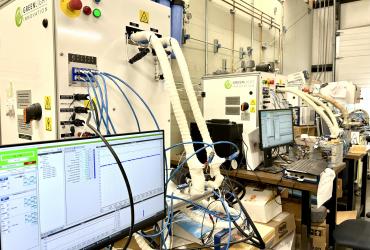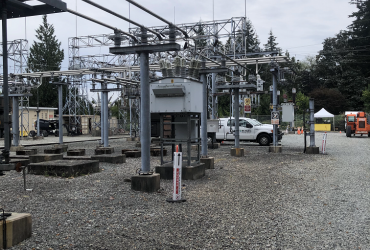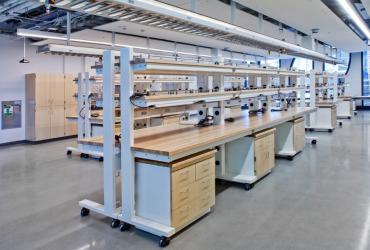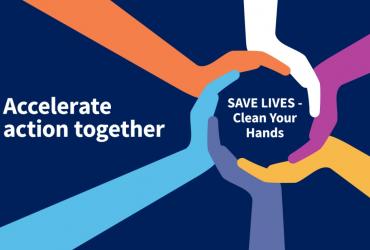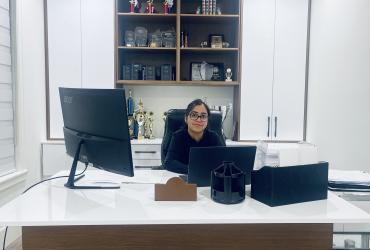Orientation and First Weeks
During the orientation and initial weeks at Corvus, the company did a good job at having the co-op students attend product familiarization meetings where we received a breakdown of each product, key terminology and concepts of lithium-ion energy storage systems. I also underwent security and safety awareness courses and was exposed to team hierarchies and the roles within the entire company, including their other locations. In the initial weeks, I was constantly trying to take note of the abbreviations and jargon used within the company while trying to understand the role of a manufacturing engineer. At fast-paced companies like Corvus, it is essential to find tricks on how to solve your issues. Simple attempts like word searching through databases, reading through training manuals, and even referencing documents similar to your task are honestly what will set you up for success the most. My first task was immediate, within the first week when I was tasked with designing a lifting mechanism for a third-party company to develop for our production line. The instant trust and responsibility were a lot to handle and I had to pause from familiarizing myself with the company and just dive right into my task. Having not much time to adjust to the company and also needing to refresh my software skills, I had a difficult time juggling everything and looking back at my initial weeks they were mostly full of stress, despite eventually finishing my task. Recording my learning process was a habit I adopted from the beginning, which helped my learning and growth throughout the term. Later, this documentation provided me with the means to train colleagues and develop instruction manuals that I will later expand upon.
Day to Day
My day-to-day changed monthly so the following are my focused daily tasks depending on what I was working on at the time.
- Engaging in the daily routine of documenting tasks, scheduling and planning to prioritize responsibilities.
- Creating purchase requisitions, orders, and work instructions for the production team.
- Analyzing risk on the production line during design stages and participating in PFMEA meetings.
- Navigating and working in a manufacturing environment, including interactions with third-party vendors.
- Learning and implementing GD&T basics, including datum selection, tolerancing, position, flatness, and perpendicularity.
- Using tools such as bandsaws and drill press to assemble parts and make modifications.
- Developing lifting mechanisms and fixtures for production processes.
- Planning and executing testing for the release of customer products.
- Collaborating with colleagues for task updates and support.
- Utilizing technical skills in SolidWorks design, work instructions and engineering drawings.
- Transitioning responsibilities and tasks as necessary to support team objectives.
- Making the best of opportunities for socialization, company culture and team bonding outside of work through organized events.
Learning and Adaptation
I did not have a strong initial expectation of what my job tasks would entail, and despite my previous writing regarding advice to other students, I did not familiarize myself much with the role of a manufacturing engineer position. I was expecting to work on the production line efficiency and immediately I found out that the line would not be running until June of the next year, so I just took each day at a time, navigating any learning curves as they arose. Adapting to the dynamic environment at Corvus required meticulous note-taking for learning and adjustment. I documented task procedures, resources I could refer to when I got stuck, and people I could contact in different areas of the company. At times my head was so scrambled by the different tasks I was completing, especially when some projects were ‘paused’ while waiting to hear back from people, or when multiple departments and tasks required my attention concurrently creating unavoidable time management challenges. When the situations arose, attention to detail and diligent note-taking were necessary. When I first started at Corvus I was lacking in confidence, in time I saw my personal growth develop through asking questions and trusting myself to figure out solutions in the end. I was able to adapt to the company and achieve constant learning by maintaining a balance between office and fieldwork, as well as community engagement through the social committee and co-op peer friendships.
Accomplishments and Challenges
My co-op experience at Corvus was a mix of various accomplishments and challenges. Each new task was different than the previous one and presented both opportunities and obstacles. In my first term, some accomplishments included developing proficiency in operating manufacturing tools, honing technical CAD skills, developing fixtures, and analyzing production line risk, including involvement in design stages and PFMEA meetings. I spent a considerable amount of time mastering battery module building, with a press plate and CNC machine, in a way that would obtain the tight tolerances required for the build. Having become one of the more knowledgeable in the task over time, I was approached by other departments to make the module stacks for their testing purposes. In the first term, my main challenge was the immense responsibility I was given in my tasks while relearning some concepts from school, along with familiarizing myself with new terminology, and technical issues. Certain areas like submitting purchase requisitions and emailing third-party companies were challenging for me at first because of the responsibility. Additionally, with the fast-changing pace of the company, many tasks were dropped or put to the side, so not having the satisfaction of completing tasks was challenging.
In my next term at Corvus, our manufacturing team transitioned responsibilities and dynamics as my prior supervisor left the company, which posed new challenges. I took this opportunity to strengthen my relationships with my coworkers and other supervisors. Acquiring GD&T basics within a short time frame for engineering drawings was a major challenge, but I prioritized my research and problem-solving skills, before seeking clarification or assistance. That being said, I also did not shy away from getting help and addressing tasks promptly, as I found that usually ended up being more time-effective. I succeeded in revising a testing procedure for a third-party witness to verify a product and have it shipped out to the customer. I had to work closely with a colleague to determine the critical aspects of the test, address any gaps in knowledge, and ensure we were prepared to pass the test. This experience honed my problem-solving skills and ability to work under pressure. By the end of my term, I made countless work instructions for the production team, some of which were used internationally, showing detailed steps and videos of me building modules for training and teaching. Lastly, thanks to my investment in maintaining thorough documentation, I was able to conduct training sessions for full-time employees. This was a significant achievement for me, and it solidified my knowledge and the contribution I’ve made in my placement.
Cultural and Environmental Observations
The fast-paced culture at Corvus, characterized by intense deadlines and focus on process improvement, was a similar energy to a ‘startup’ company, which resonated with me. I thrive in an atmosphere where troubleshooting, development, and changes occur frequently, as it challenges and motivates me and leads to greater satisfaction. Despite the demanding nature, there was a strong emphasis on team interaction and community building, with opportunities for socialization and team bonding. Just like any larger company, there may be communication gaps between hierarchies and the deadlines can induce stress. However, I think it is really interesting that the different Corvus locations are working towards further merging and appreciate the emphasis on sending employees to the location they are working with to foster relationships and in-person connections. Corvus Energy embodies diversity and shared interests among its employees. Individual differences are respected, and co-workers collaborate in pursuit of their shared goal of clean energy and seamless product development. I am curious to learn more about the cultural dynamics and engineering practices at Corvus’s main office in Norway. I would welcome the opportunity to learn more or travel there to experience it firsthand if I continued at Corvus.
Social and Extracurricular Activities
When I am feeling out of place or anxious about starting something new, I’ve learned to start with areas where I excel and am confident. On the first day of orientation, when the ‘Social Committee’ was briefly mentioned, I immediately knew that would be a side task that I wanted to be a part of. I believe strongly in participating wholeheartedly to make the most of the experience. Even though I was aware that joining the social committee might be an unusual endeavour for a single-term student, I saw it as an opportunity to engage with more colleagues across different departments. With the social committee, not only did I work with a group from many different disciplines within the company, but during the events I helped put on, the colleagues at Corvus I hadn’t had the opportunity yet to meet would introduce themselves and congratulate me on the event. Participation in social events and extracurricular activities at Corvus contributed to a sense of community within the organization. The social committee ran events such as Fun Fridays, the Christmas party, mini golf food drives and garage sales, which provided avenues for socialization and team building outside of work. These activities played a crucial role in fostering connections among colleagues and strengthening the sense of belonging within the organization. I was even the emcee for part of the Christmas party of 80+ people! I also participated in playing Dungeons and Dragons weekly after work with colleagues and joined the company Sun Run team. I 100% recommend getting involved in company activities.










